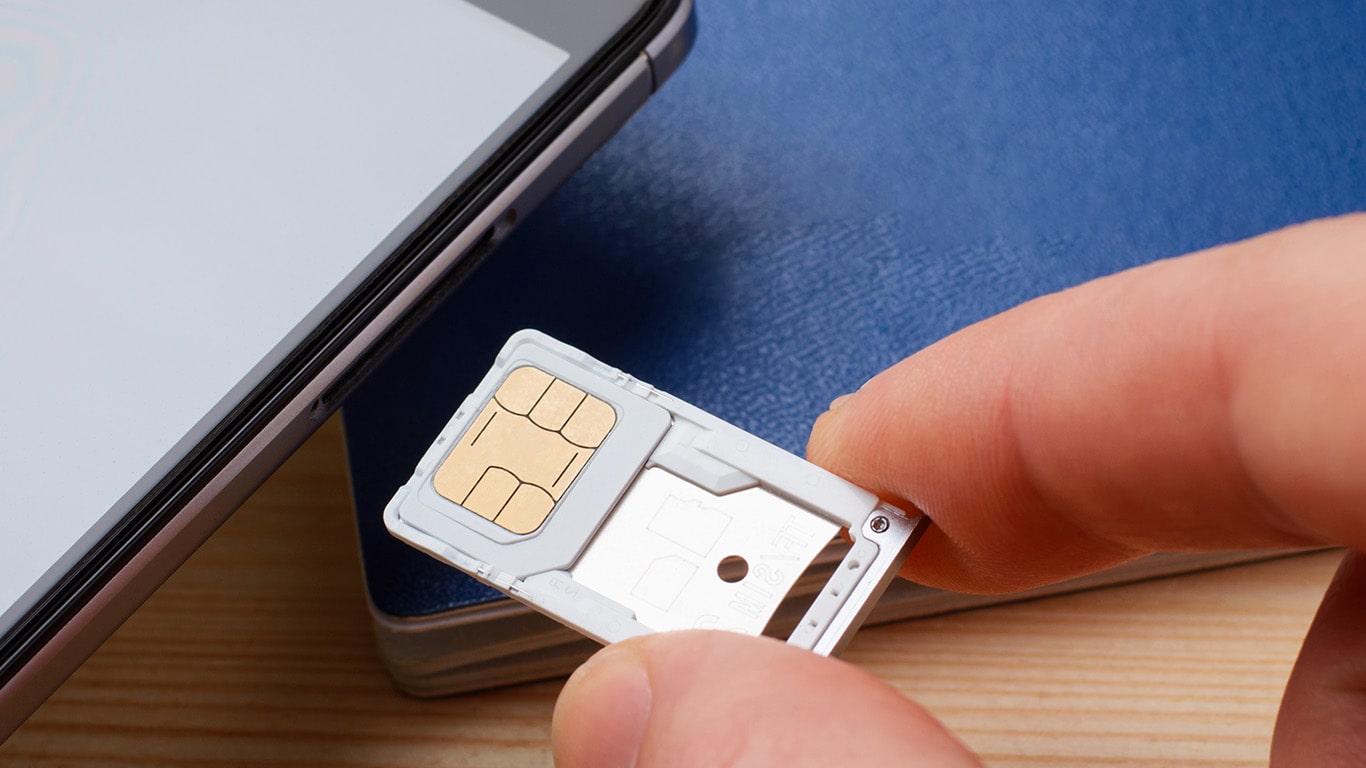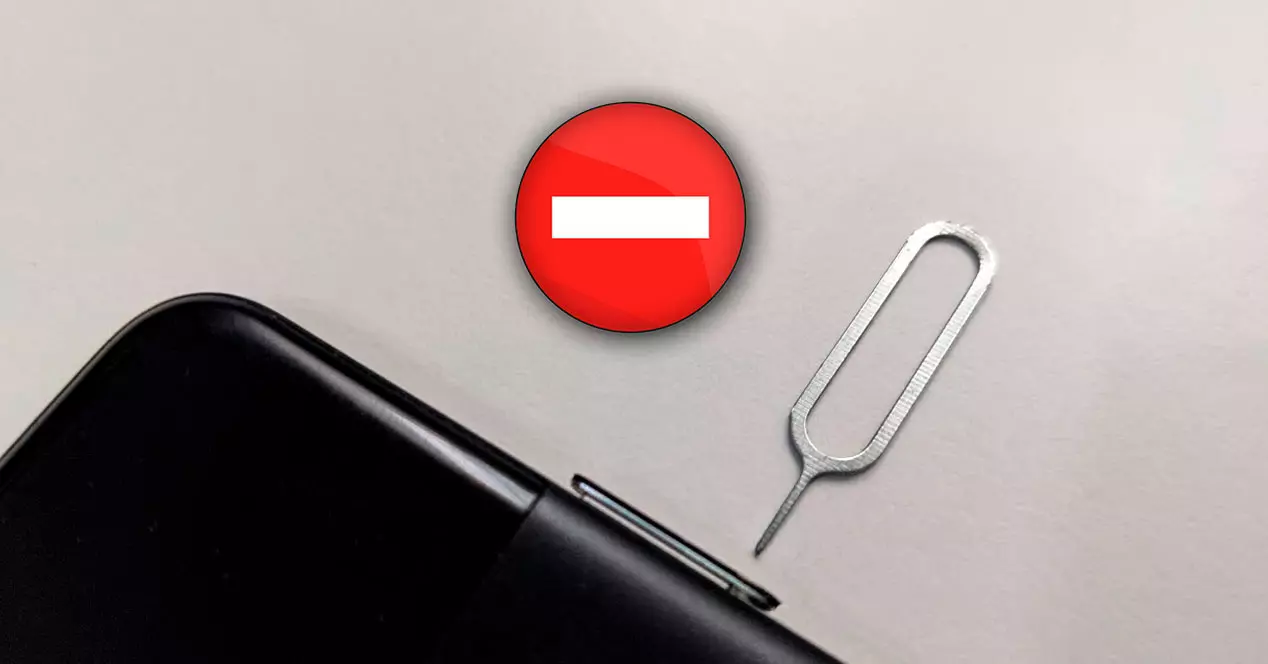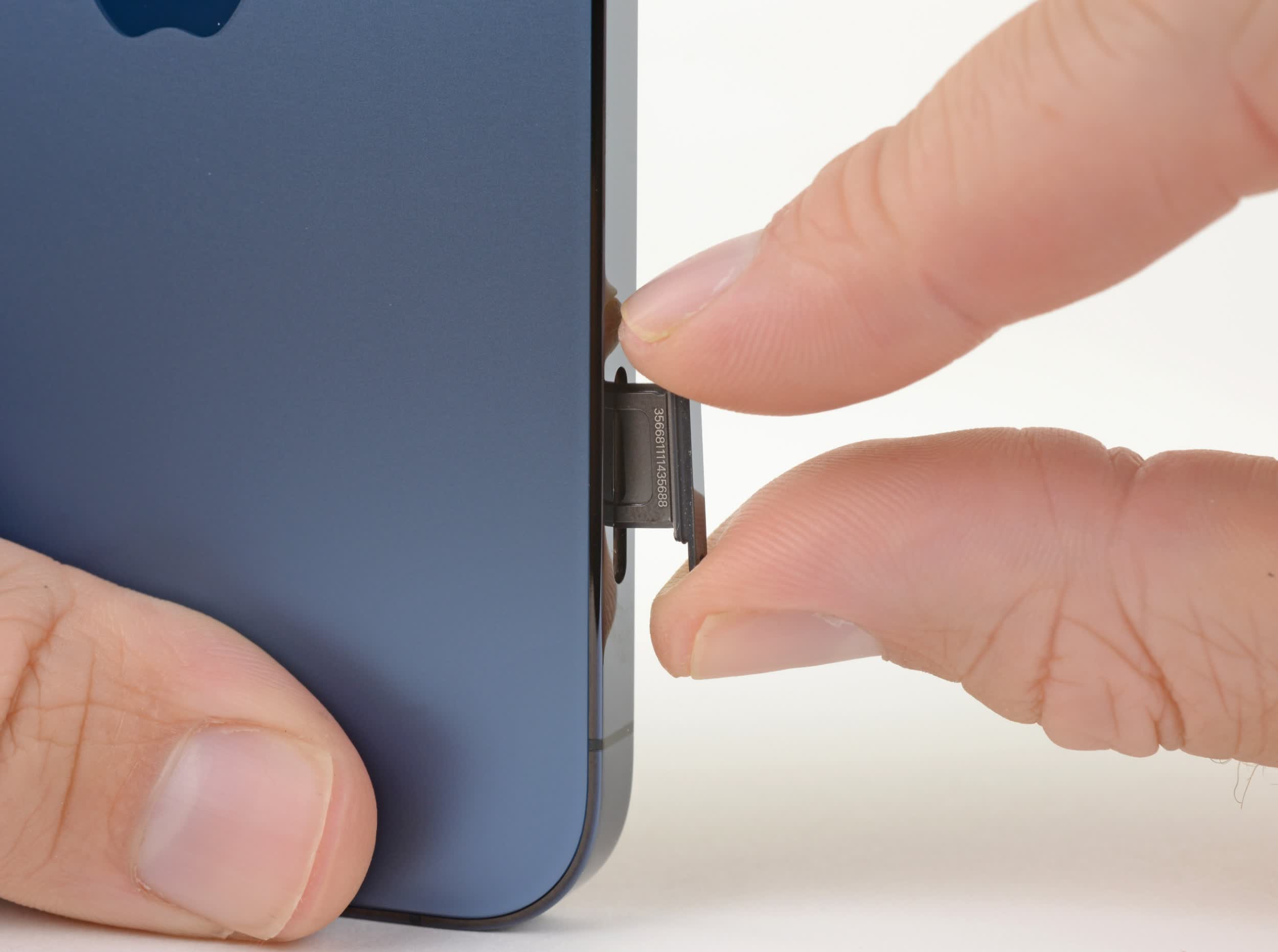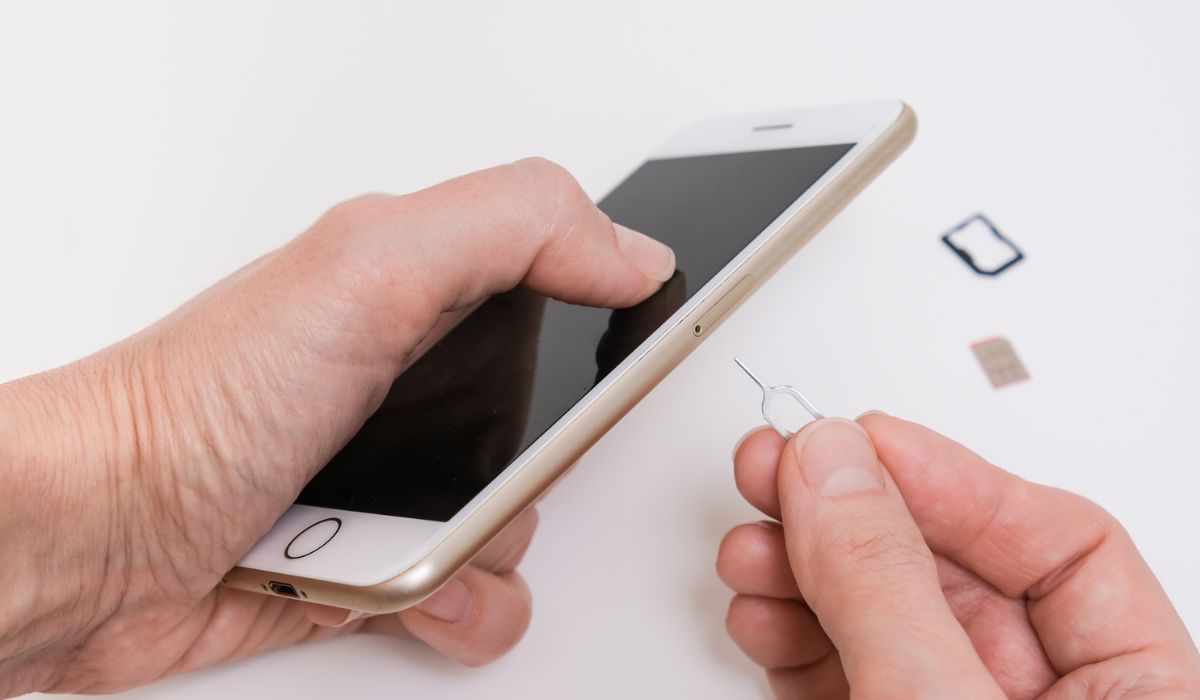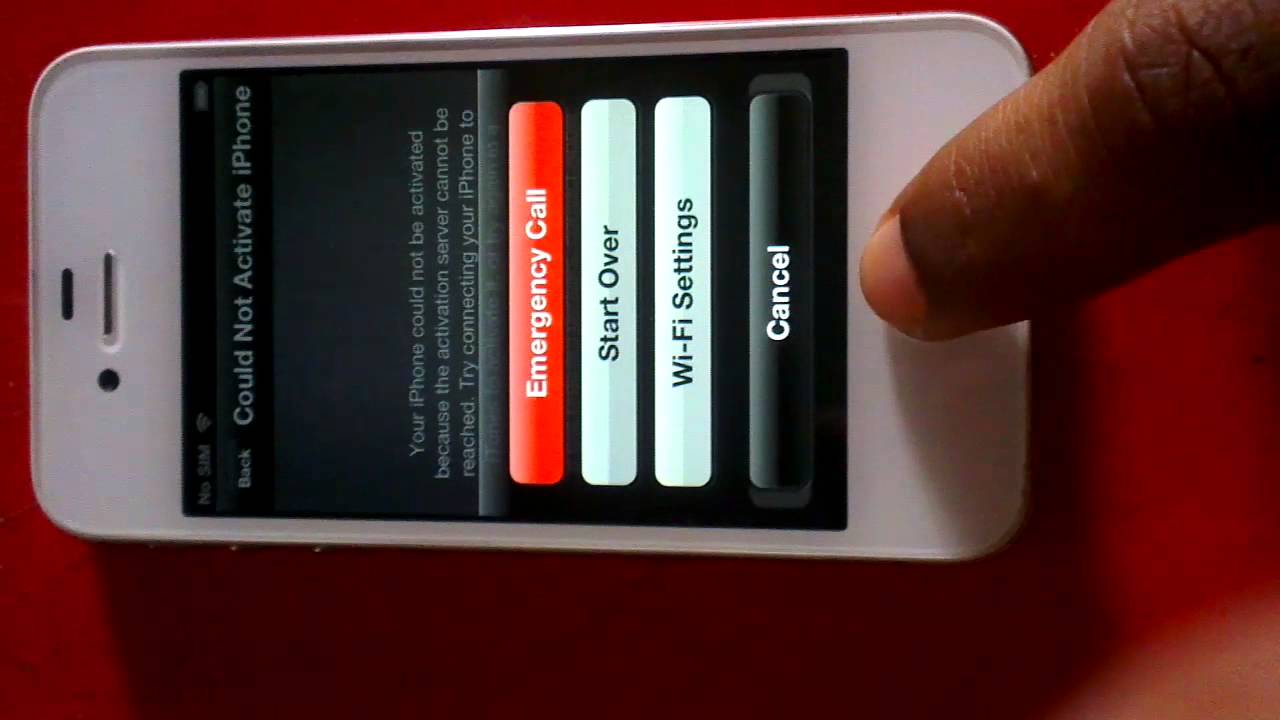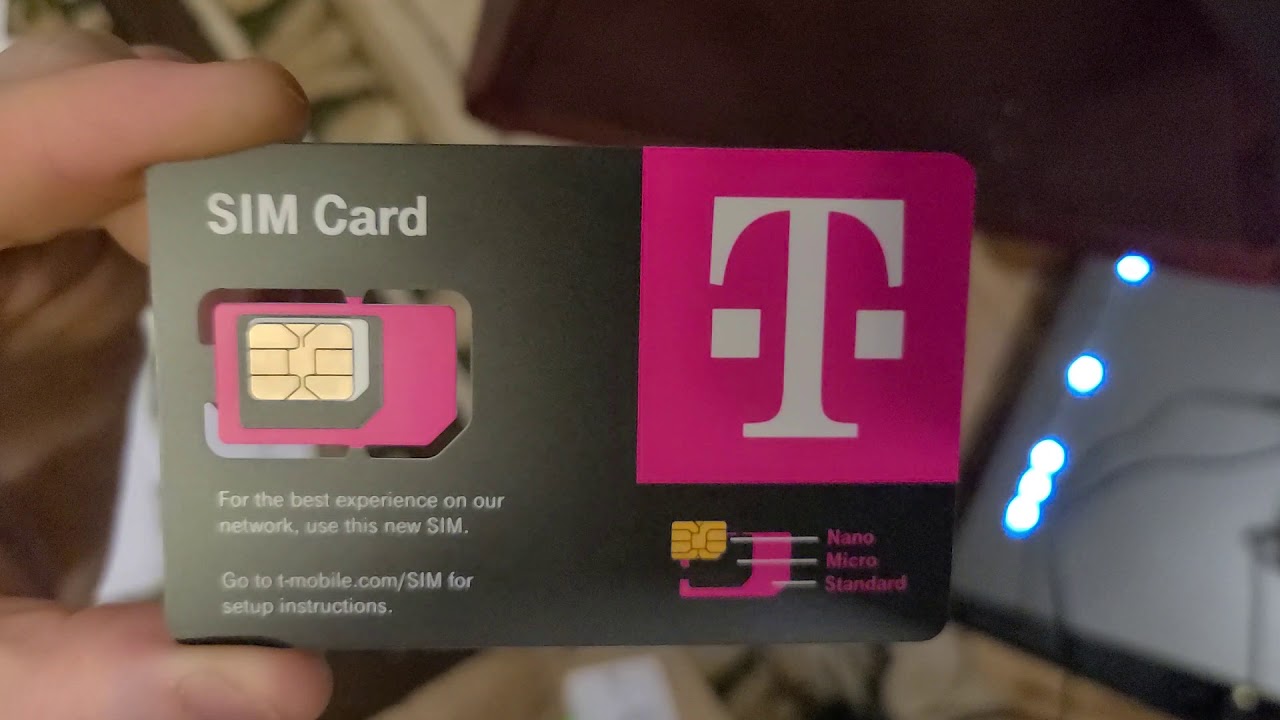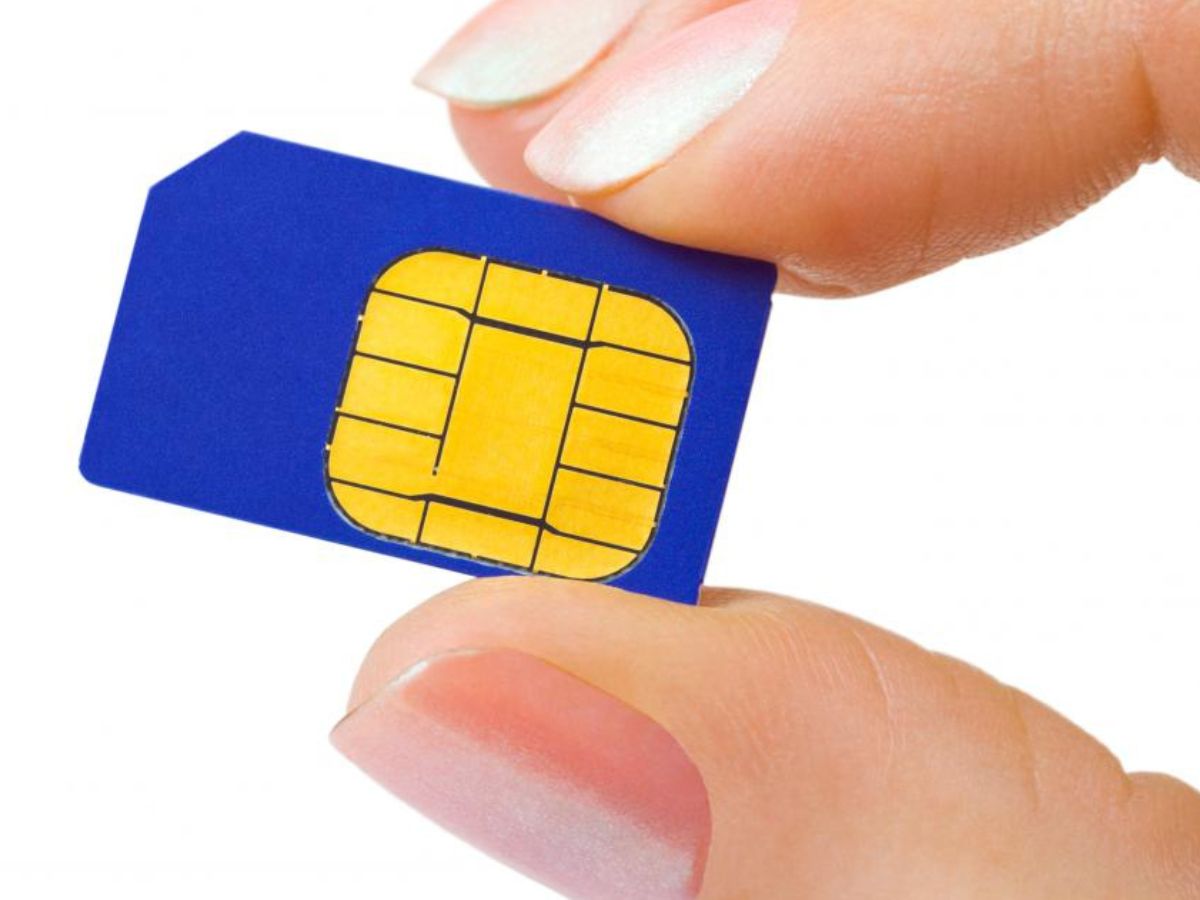How Someone Can Get Your SIM Card
There are several ways someone could potentially get their hands on your SIM card, posing a significant risk to your personal information and security. Understanding these potential avenues of access can help you take proactive steps to safeguard your SIM card and prevent unauthorized use.
Here's how someone can get your SIM card:
-
Physical Theft: If you misplace your phone or it gets stolen, the perpetrator could easily remove the SIM card and use it in another device. This type of theft can happen in crowded places, such as public transportation or busy shopping areas, where pickpockets may target unsuspecting individuals.
-
Social Engineering: Scammers and fraudsters may use deceptive tactics to trick you into revealing sensitive information, including your SIM card details. This could involve posing as a legitimate authority figure or service provider and coaxing you into sharing personal details over the phone or online.
-
Insider Threats: In some cases, individuals with access to your personal belongings or information, such as friends, family members, or co-workers, may misuse their privileges to gain access to your SIM card without your knowledge.
-
Mail Theft: If your SIM card is delivered via postal mail, it could be intercepted by malicious individuals who target mailboxes or engage in mail theft schemes.
-
Fraudulent Activation: Cybercriminals may attempt to fraudulently activate a new SIM card in your name by using stolen personal information obtained through data breaches or other illicit means.
By being aware of these potential threats, you can take proactive measures to protect your SIM card and personal information from falling into the wrong hands. It's crucial to stay vigilant and implement security measures to minimize the risk of unauthorized access to your SIM card.
Potential Risks of Someone Having Your SIM Card
The potential risks of someone having unauthorized access to your SIM card cannot be overstated, as it opens the door to a myriad of detrimental consequences. Here are the significant risks associated with someone having your SIM card:
Identity Theft
Possession of your SIM card grants access to your phone number and, by extension, your digital identity. With this information, malicious actors can engage in identity theft, potentially gaining access to your sensitive personal and financial data. This could lead to fraudulent activities, unauthorized transactions, and even the compromise of your online accounts.
Unauthorized Communication
An individual in possession of your SIM card can exploit it to impersonate you, sending messages or making calls that appear to originate from your number. This can be used to deceive your contacts, perpetrate scams, or spread false information, tarnishing your reputation and causing distress to those who receive such communications.
Privacy Breach
Your SIM card holds access to your text messages, call logs, and other sensitive communications. Unauthorized access to this information can lead to a breach of your privacy, potentially exposing personal conversations, confidential details, and private interactions.
Account Takeover
Many online services and apps rely on phone number verification as part of their security protocols. If someone gains access to your SIM card, they could potentially use it to bypass two-factor authentication measures and gain unauthorized access to your online accounts, including email, social media, and financial platforms.
Targeted Scams and Phishing
With access to your phone number, a malicious actor can launch targeted scams and phishing attempts, using personalized information to craft convincing messages aimed at deceiving you or your contacts. This could lead to financial loss, data breaches, or the compromise of sensitive information.
Device Compromise
In addition to the risks associated with the SIM card itself, unauthorized access to your SIM card may also lead to the compromise of your device. This could involve unauthorized use of your phone, installation of malicious software, or unauthorized access to your personal data stored on the device.
Understanding these potential risks underscores the critical importance of safeguarding your SIM card and taking proactive measures to mitigate the likelihood of unauthorized access. By recognizing the potential consequences of SIM card compromise, individuals can prioritize the implementation of robust security practices to protect their personal information and digital identity.
Types of Fraud and Identity Theft Related to SIM Card Theft
The theft or unauthorized use of a SIM card can lead to various forms of fraud and identity theft, posing significant risks to an individual's personal and financial security. Understanding the specific types of fraudulent activities and identity theft related to SIM card theft is crucial for comprehending the potential impact of such incidents.
Account Takeover and Unauthorized Access
One of the primary risks associated with SIM card theft is the potential for account takeover and unauthorized access to various online platforms. With access to the victim's phone number, malicious actors can exploit this information to bypass two-factor authentication measures and gain unauthorized entry into the victim's email, social media, and financial accounts. This can lead to the compromise of sensitive personal and financial information, as well as the perpetration of fraudulent activities under the victim's identity.
Identity Impersonation and Social Engineering
Possession of a stolen or unauthorized SIM card enables perpetrators to impersonate the victim, using their phone number to engage in social engineering tactics and deceptive practices. This can involve contacting the victim's acquaintances, colleagues, or service providers under false pretenses, potentially leading to the divulgence of sensitive information or the perpetration of scams. Such identity impersonation can tarnish the victim's reputation and lead to distressing consequences for both the victim and their contacts.
Financial Fraud and Unauthorized Transactions
Unauthorized access to a victim's SIM card can facilitate financial fraud, allowing perpetrators to exploit the victim's phone number for fraudulent transactions, unauthorized purchases, or illicit financial activities. This can result in financial losses for the victim, as well as potential damage to their credit history and financial standing. Moreover, the victim may face challenges in proving the unauthorized nature of such transactions, leading to prolonged disputes and legal complications.
Privacy Breach and Confidential Information Exposure
The compromise of a SIM card can lead to a breach of the victim's privacy, with potential exposure of sensitive text messages, call logs, and other confidential communications. This breach of privacy can have far-reaching consequences, including the exposure of personal conversations, confidential details, and private interactions. The unauthorized access to such sensitive information can lead to emotional distress and reputational damage for the victim.
Targeted Scams and Phishing Attempts
Possession of a victim's SIM card provides perpetrators with the means to launch targeted scams and phishing attempts, leveraging personalized information to craft convincing messages aimed at deceiving the victim or their contacts. Such targeted scams can exploit the victim's personal and social connections, leading to financial loss, data breaches, or the compromise of sensitive information.
Understanding these types of fraud and identity theft related to SIM card theft underscores the critical importance of implementing robust security measures to safeguard personal information and prevent unauthorized access to SIM cards. By recognizing the potential consequences of SIM card theft, individuals can prioritize proactive steps to mitigate the risks and protect their digital identity and financial well-being.
Steps to Take if Your SIM Card is Lost or Stolen
Losing or having your SIM card stolen can be a distressing experience, but taking immediate action is crucial to mitigate potential risks and protect your personal information. If you find yourself in this situation, here are the essential steps to take:
-
Contact Your Mobile Service Provider: Immediately reach out to your mobile service provider to report the loss or theft of your SIM card. They can deactivate the SIM card to prevent unauthorized use and provide guidance on obtaining a replacement.
-
Change Your Online Account Passwords: As a precautionary measure, change the passwords for your online accounts associated with your phone number, such as email, social media, and financial platforms. This can help prevent unauthorized access to your accounts through SIM card-related identity theft.
-
Enable Two-Factor Authentication: If possible, enable two-factor authentication methods that do not rely on SMS verification. Utilize authenticator apps or physical security keys for enhanced account security, reducing the reliance on SIM-based verification.
-
Monitor Your Accounts and Activity: Keep a close eye on your bank accounts, credit card statements, and online activity for any unauthorized transactions or suspicious behavior. Promptly report any unusual activity to your financial institutions and relevant service providers.
-
File a Police Report: If your SIM card was stolen, consider filing a police report to document the incident. This can be valuable for establishing a record of the theft and may be necessary for addressing any resulting fraudulent activities.
-
Secure Your Device: If your phone was also lost or stolen, take steps to secure the device. Use remote tracking and locking features, such as "Find My Device" or "Find My iPhone," to protect your personal data and potentially locate the device.
-
Obtain a Replacement SIM Card: Work with your mobile service provider to obtain a replacement SIM card and ensure it is properly activated. Take this opportunity to inquire about any additional security measures or options to further protect your account.
-
Educate Yourself on SIM-Swapping Scams: Familiarize yourself with common SIM-swapping scams and techniques used by fraudsters. By staying informed, you can better recognize potential threats and take proactive measures to safeguard your SIM card and personal information.
By promptly taking these steps, you can mitigate the potential risks associated with a lost or stolen SIM card and take proactive measures to safeguard your personal information and digital identity. Stay vigilant and prioritize security to minimize the impact of such incidents.
Tips for Protecting Your SIM Card and Personal Information
Safeguarding your SIM card and personal information is paramount in today's digital landscape. Implementing proactive measures can significantly reduce the risk of unauthorized access and potential misuse of your personal data. Here are essential tips for protecting your SIM card and personal information:
1. Use PIN Protection
Enable the PIN (Personal Identification Number) security feature on your SIM card. This adds an additional layer of protection, requiring a unique PIN to access the SIM card's functionality. Ensure that your PIN is not easily guessable and avoid using common combinations such as "1234" or "0000."
2. Keep Your SIM Card Secure
Treat your SIM card like a valuable asset. Store it in a safe and secure location, and avoid leaving it unattended or exposed. When not in use, keep your SIM card in a protective case or holder to prevent damage and minimize the risk of loss or theft.
3. Avoid Sharing Personal Details
Be cautious about sharing your SIM card details, including the phone number associated with it, with unfamiliar or unverified individuals or online platforms. Exercise discretion when providing personal information to mitigate the risk of social engineering tactics and fraudulent activities.
4. Regularly Monitor Account Activity
Stay vigilant by regularly monitoring your mobile account activity for any unauthorized changes, such as unexpected SIM card swaps or unrecognized usage. Promptly report any suspicious activity to your mobile service provider to address potential security breaches.
5. Implement Two-Factor Authentication
Utilize two-factor authentication (2FA) methods for your online accounts, opting for authentication mechanisms that do not rely solely on SMS verification. Consider using authenticator apps or physical security keys to enhance the security of your accounts and reduce reliance on SIM-based verification.
6. Enable Remote Device Management
Take advantage of remote tracking and management features available for your mobile device. Activate services such as "Find My Device" or "Find My iPhone" to remotely locate, lock, or erase your device in the event of loss or theft, adding an extra layer of security for your personal data.
7. Stay Informed About Security Threats
Stay informed about evolving security threats and common tactics used by fraudsters to compromise SIM cards and personal information. Educate yourself about SIM-swapping scams, phishing techniques, and identity theft methods to recognize potential risks and take proactive measures to protect your information.
8. Secure Your Physical Mail
If your mobile service provider delivers SIM cards through postal mail, ensure the security of your physical mailbox to prevent mail theft. Retrieve delivered items promptly and consider using a lockable mailbox for added protection against unauthorized access.
By incorporating these proactive measures into your personal security practices, you can significantly reduce the risk of unauthorized access to your SIM card and protect your personal information from potential misuse. Prioritizing the security of your SIM card and personal data is essential in safeguarding your digital identity and maintaining control over your online presence.







